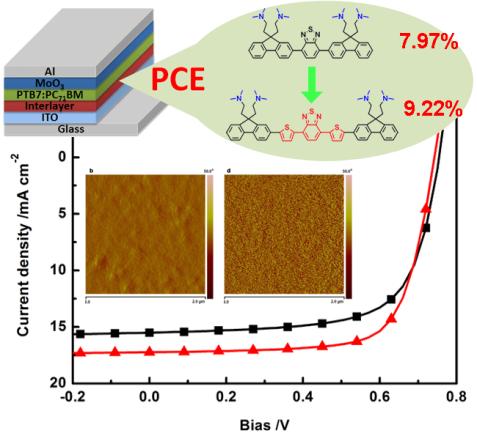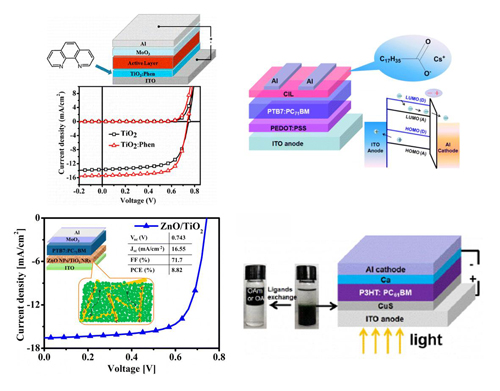Built-in Sink Soap Dispenser,Foaming Soap Dispenser, counter-mounted soap dispenser,Hand Soap Countertop Dispenser,Dish Soap Dispenser For Kitchen Sink,Kitchen Sink Soap Dispenser, Pump bottle liquid soap dispenser Jiangmen MEIAO Kitchen And Bathroom Co., Ltd. , https://www.meiaosink.com
Organic solar cells have gained significant attention due to their diverse chemical structures, lightweight properties, and the ability to form large-area flexible devices. They represent one of the most promising and rapidly evolving fields in photovoltaic research. Inverted device architectures, which use ITO as the cathode and high-work-function metals as the anode, offer enhanced device stability. However, the energy level mismatch between ITO and the acceptor material (such as PCBM) often requires the introduction of an interfacial layer to create an ohmic contact, thereby improving electron extraction and collection efficiency.
Alcohol-soluble organic molecules have emerged as effective cathode interface materials, capable of reducing the work function of ITO and boosting the overall performance of photovoltaic devices. These materials are not only highly soluble but also easily processable into thin films. Researchers at the Ningbo Institute of Materials Technology and Engineering, Chinese Academy of Sciences, led by Fang Junfeng, achieved a remarkable power conversion efficiency of 9.2% by optimizing the conjugated units of alcohol-soluble small molecules. This breakthrough represents a world-leading result in this field.
Studies have shown that alcohol-soluble small molecules with extended conjugation systems can produce more hydrophobic cathode interface layers. This improvement enhances the morphology of the active layer, leading to higher short-circuit current (Jsc) and fill factor (FF), ultimately resulting in more efficient solar cells. These findings have opened new pathways for the design of advanced interface materials in organic photovoltaics. The results were published in *Advanced Energy Materials* (DOI: 10.1002/aenm.201400359) and a Chinese patent (No. 201310264027.7) was filed.

*Progress in research on interface materials for photovoltaic materials for all materials in Ningbo*
In addition to these achievements, the research group has also developed various organic and inorganic interface materials, achieving excellent performance. Their work has been published in prestigious journals such as *ACS Applied Materials & Interfaces* (DOI: 10.1021/am404423k, 10.1021/am403829k, 10.1021/am405622q) and *Journal of Colloid and Interface Science* (DOI: 10.1016/j.jcis.2013.12.057).

*Progress in research on interface materials for photovoltaic materials for all materials in Ningbo*
This research has been supported by several key programs, including the Chinese Academy of Sciences' 100-Talents Plan, the National Natural Science Foundation of China, the Youth Project, the China Postdoctoral Science Foundation, and the Ningbo Natural Science Foundation. These supports have played a crucial role in advancing the development of high-performance organic photovoltaic materials.
Nowadays, people are more concerning cleaness and hygenic, in particularly amidst and after the outbreak of Covid 19. Handwashing is considered so important that a soap dispensor is quite in a great help. Additionally, a soap dispensor can be used to sanitizing and disinfecting effort.Â